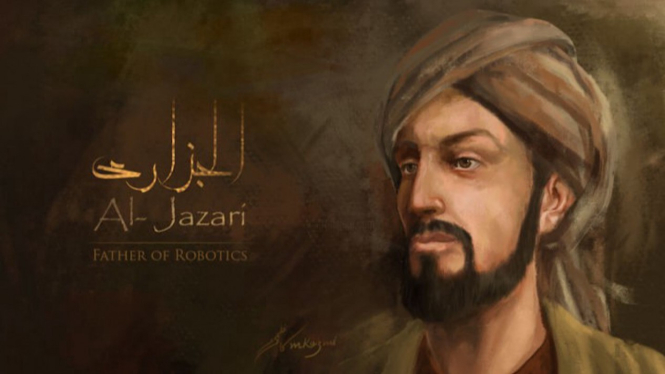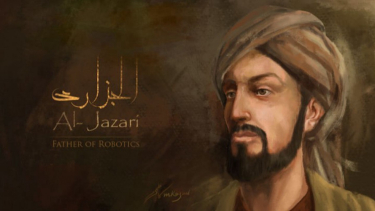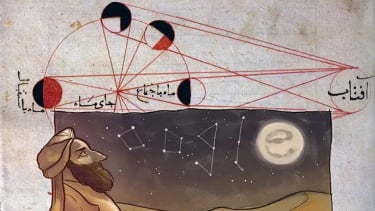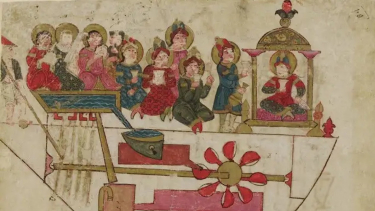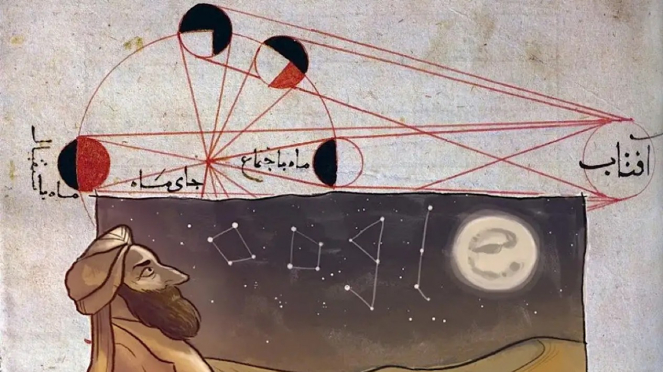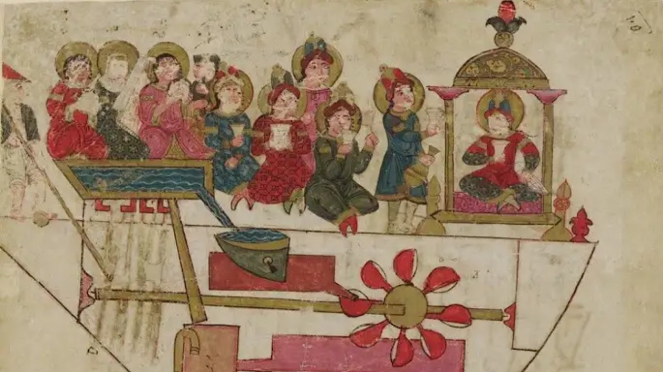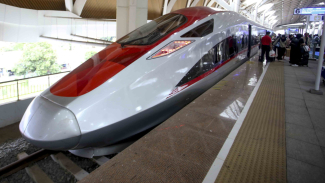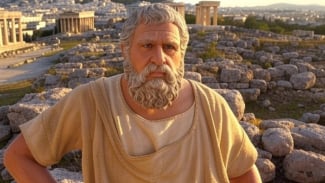Knowing Al-Jazari: Moslem Inventor Named as the Father of Robotics
- medium.com
Jakarta – Before Western civilization created the various technologies used today, 800 years ago the world had known a modern mechanical moslem scientist with brilliant work. The scientist was named Badi Az-Zaman Abu Izz bin Ismail bin Ar-Razaz Al-Jazari.
Al-Jazari was born in 1136 in Diyarbak?r, a region that is now the south-central part of Turkey. The son of a craftsman, he was born during a time of political turmoil, due to local power struggles and the impact of the Crusades.
Metode aturan Birani yang ditemukan Ismail al-Jazari.
- medium.com
Al-Jazari worked as an engineer in the service of the regional ruler, Artuqid, whose dynasty once extended its empire into Syria.
However, during al-Jazari's lifetime, Artuqid rule came under the rule of the more powerful Zangid dynasty, and later by the successors of the Muslim hero Saladin. (This is the reason why the "Hired Assassins" were sent to kill Saladin).
Despite the upheaval of the Crusades and the turbulent relations between the various Muslim powers, this brilliant engineer's life was spent peacefully in the service of several Artuqid kings, for whom he designed over a hundred ingenious devices.
Unlike other practical inventors of the time, who left little record of their work, al-Jazari had a passion for documenting his work and explaining how he built his marvelous machines.
In 1206, after a quarter of a century of his remarkable work, he gave the world a catalog of his "incomparable machines," now known as The Book of Knowledge of Ingenious Mechanical Devices.
The First Robot in History? The fantastic device invented by al-Jazari is of great interest to historians of science as it is thought to be the first programmable "robot" in history.
Similar to a music box, this invention, a boat with four "musicians" - a harpist, a flute player, and two drummers - was designed to play songs for entertainment.
The mechanism that moves the drummers can be programmed to play different beats. (Robots were already entertaining in al-Jazari's time, but their new capabilities will change our lives).
For all its ingenuity, such a device could only be played by the rich.
With his aristocratic hat on, al-Jazari understood the need to impress his wealthy customers, who in turn would amaze visiting dignitaries with the genius' latest marvels.
As a craftsman of a humble background, he also understood everyday needs and designed useful gadgets to ease the daily workload.
The book describes in detail at least five machines that facilitate water collection and irrigation, both on farms and at home.
Other highly practical machines are also included in his book: a crankshaft that converts linear motion into rotary motion; and a tool for calibrating locks and other holes, among many other things.
The humble nature of the Book of Knowledge is also reflected in its language. While other inventors deliberately wrapped their prose in obscure language to limit it to the elite, al-Jazari went to great lengths to make it accessible to the general readers of the time so that they could build some more practical machines.
Given that al-Jazari was as interested in the process of construction as he was in theory and calculation, some researchers have even described his book as a kind of "instruction manual".
Life of Al-Jazari
Kotak musik yang ditemukan al-Jazari
- medium.com
Al-Jazari died in 1206, the year in which he presented his Book of Knowledge to the Sultan. He is remembered primarily for this book, but his realized inventions would play an important role in people's lives in later years.
Among these were water supply systems using gears and hydraulic energy, which were used in mosques and hospitals in Diyarbakir and Damascus.
In some cases, the systems modeled on his designs are still in use today. Most of his innovations were centuries ahead of the achievements of European science.
His work on conical valves key component in hydraulic engineering-was first mentioned in Europe more than two centuries later by Leonardo da Vinci, who was also reportedly fascinated by al-Jazari's robots.
Today, al-Jazari's name inspires awe among historians of science.
Engineer and historian of technology Donald R. Hill, author of the famous translation of The Book of Knowledge in 1974, said that the importance of al-Jazari's work "cannot possibly be overemphasized.
As the father of robotics, he has been described as the "Leonardo da Vinci of the East," an epithet that is in many ways inappropriate. It may be more appropriate to describe Leonardo as the "al-Jazari of the West."
